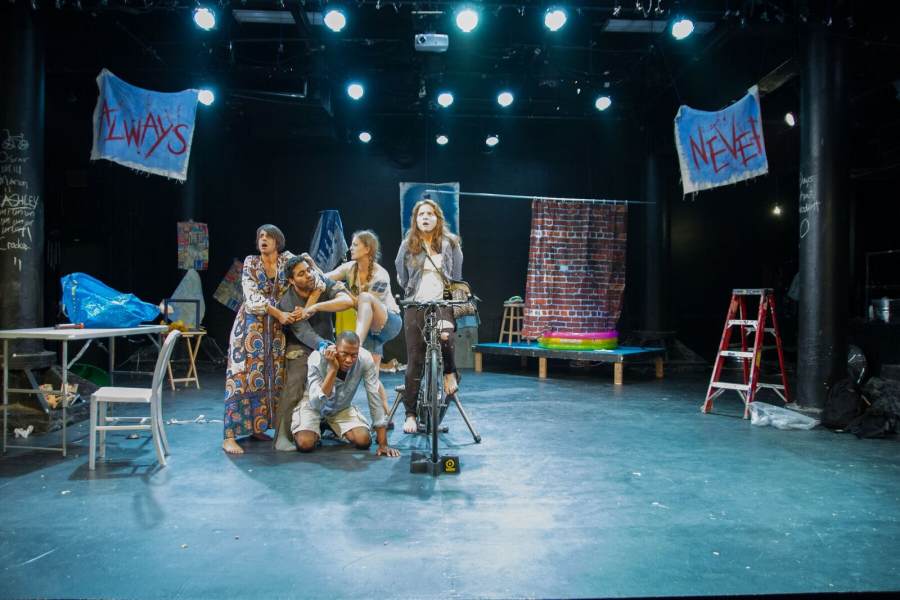

As I digest the play The Anthropologists Save the World! by the theater collaborative The Anthropologists and directed by company founder Melissa Moschitto, the challenge of art making is crystallized. A piece of theater needs more than just the belief itself — it needs an original idea, or the sense of an original idea, or, well, at least some investigation of an original belief. Without it, a play will feel TV-caricatured and get tired very quickly, despite stemming from a genuine purpose.
The Anthropologists sets up two situations: Aldous Huxley monitoring a quit-smoking group, and a band of survivalists living through a doomsday scenario in New York City. This is set up into two sections, each with very bare design ideas. The dialogue feels improvised, notwithstanding a few specific monologues.
The play wants to be about the paradox of humans as an insensible parasite, our host being our slowly deteriorating planet, and our mockable and ultimately selfish attempts at change. All of those ideas are abundantly clear, because simple ideas are simply communicable through text and plain stage images. What’s not there is an investigation of that belief, a feeling about that belief that goes beyond the initial stirring, the unification of all the ideas.
I think part of the issue is the method. Text and character may not be the best vehicles to talk about this somewhat abstract belief. The performance of Aldous Huxley, who introduced the paradox of the situation, was absolutely a highlight of the evening, as his work was detailed and consistent and fun. But the remainder of the characters, who were tasked with following through with the idea, were uneven, somewhat finite, and contributed to the play's fumbling nature.
The work's epilogue, though, began to break through. Titled The Robots, and finally employing a much more mature sense of spacing and lighting design, the ensemble performed as a group-think amoeba, lost in technology, then two impressive stilts walkers propose to each in a charming-less and interesting absent performance style. It finally hit the spectators where it hurts, finally asked something of us. Perhaps more alternative performance methods are better for these sorts of theatrical inquiries.